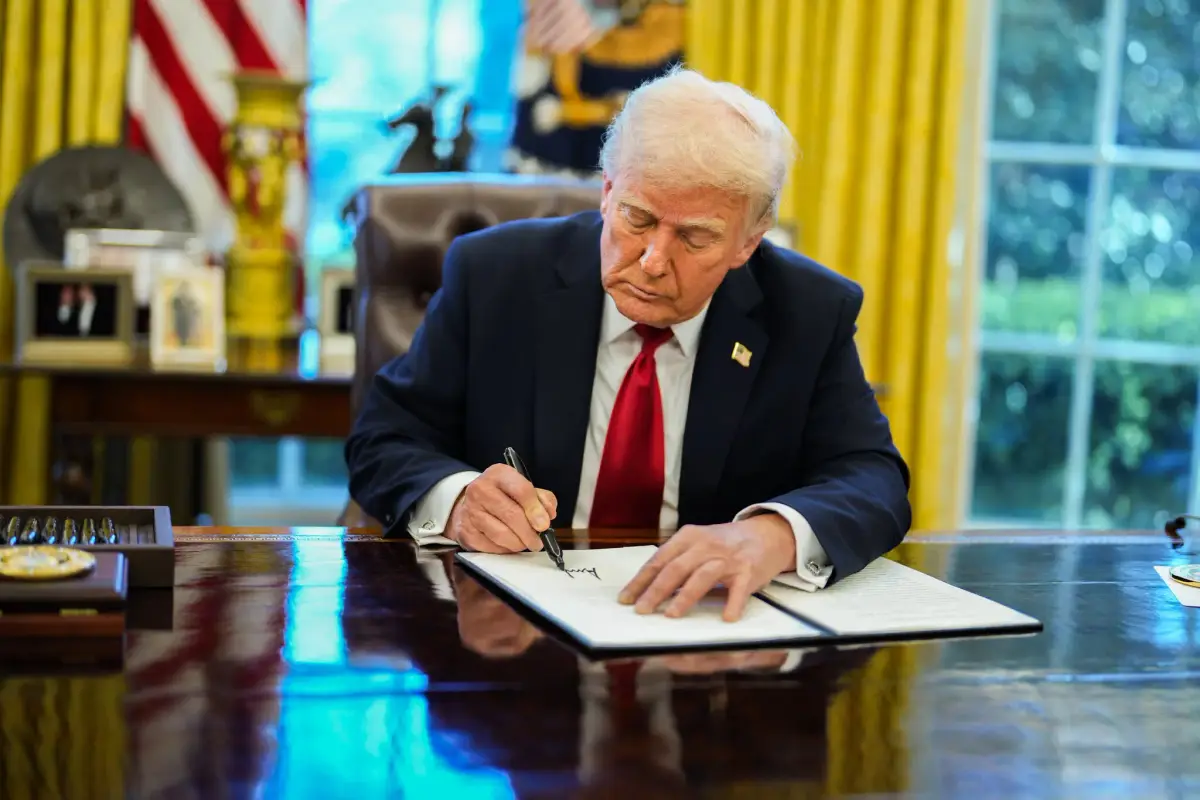President Donald Trump is moving closer to a self-imposed April 2 deadline for implementing sweeping tariffs, threatening additional measures against foreign adversaries, even as he has expressed a willingness to negotiate deals.
Trump has framed April 2 as “Liberation Day,” a date when he plans to impose reciprocal tariffs on an undisclosed number of countries, as well as 25% tariffs on automobiles and car parts. However, during a phone interview with NBC News’ Kristen Welker over the weekend, he also signaled the potential for further tariffs on U.S. adversaries, specifically Russia and Iran.
In the interview, Trump didn’t hold back on his frustrations with Russian President Vladimir Putin. “I was very angry – pissed off – when Putin started getting into Zelensky’s credibility, because that’s not going in the right location, you understand?” Trump told Welker, referring to Putin’s recent comments suggesting that Ukraine be placed under a “temporary administration” while the two countries worked toward a deal. Trump added, “But new leadership means you’re not gonna have a deal for a long time, right? … But I was pissed off about it. But if a deal isn’t made, and if I think it was Russia’s fault, I’m going to put secondary sanctions on Russia.”
This harsh criticism of Putin stands in stark contrast to Trump’s previous rhetoric, particularly his support for Ukrainian President Volodymyr Zelensky and his calls for elections in Ukraine. Trump further emphasized that Putin was aware of his anger, noting, “Putin knows I’m angry.”
Trump warned that if no deal is reached with Russia, he could impose secondary tariffs on the country. “If Russia and I are unable to make a deal on stopping the bloodshed in Ukraine, and if I think it was Russia’s fault, which it might not be, but if I think it was Russia’s fault, I am going to put secondary tariffs on oil, on all oil coming out of Russia,” he said. Trump did not elaborate on how he would enforce these secondary tariffs.
Last week, the White House announced an agreement requiring Russia to cease using force in the Black Sea as a precondition for lifting sanctions on its banks and exports related to its invasion of Ukraine. However, the agreement fell short of the 30-day full ceasefire that had initially been proposed by the White House.
When asked if he would be willing to speak with Putin this week, should the Russian leader “do the right thing,” Trump responded affirmatively, saying, “Yeah.”
In the same interview, Trump indicated that he is also “considering putting on secondary tariffs on Iran … until such time as a deal is signed.” During his first term, Trump withdrew the U.S. from the 2015 nuclear deal with Iran and world powers, a pact that had placed strict limits on Iran’s nuclear program in exchange for sanctions relief. On Sunday, Iranian President Masoud Pezeshkian reiterated that the Islamic Republic rejected direct negotiations with the U.S. regarding its nuclear program.
Despite this, the U.S. has already imposed heavy sanctions on Iran, and there is minimal trade between the two nations.






